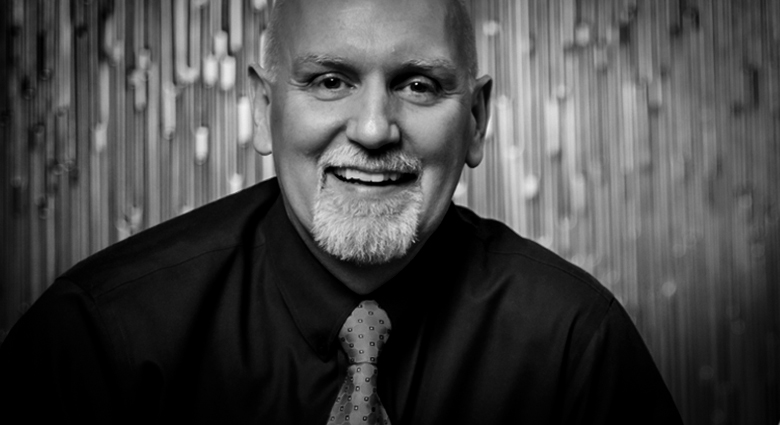Temporary loss of belief is inevitable in any organization. The hiring of a new CEO, a merger or acquisition, an evolution from private to public status, or a new competitor in your market all can throw even the most effective culture into a tailspin and shake employee confidence. Ironically, it is the very moment of crisis when the organization needs its people to believe the most and yet their faith is challenged.
One of the most important things that separates a great company from the pack is the way leaders respond to a loss of belief. Consider, for instance, the case of one new manager and a football (soccer) franchise that had lost its way.
"The thing that separates a great company from the pack is the way leaders respond to a loss of belief."
Founded in 2004, the Real Salt Lake soccer club (in Utah, United States) had started with a bang and expectations were high. Attendance the first year was among the highest in Major League Soccer, but by the time Bill Manning assumed his role as president in April 2008, the franchise had lost momentum and many in the front office had what he called a blasé attitude. “The team had a losing record and we were in a small market,” says Manning. “Many seemed to think, There’s not much we can do.”
The story of how the club started to thrive is a study in how a new management team can focus on culture, reigniting performance and growth. As proof, over the past three years Real Salt Lake has quadrupled sponsorship revenues and doubled season ticket sales, outcomes any business would be envious of.
Manning could see the right ingredients were not in place for Real Salt Lake to take off: “We had to change the culture. We needed an attitude of ‘Do anything you can to win a big sponsorship or treat a customer to a great experience.’” For him, belief was crucial: “We had to build believers. We had to challenge people to work harder, be more efficient, and raise their game to another level.”
The first step for the new president was to determine who was with him and who was not.
Says Manning, when he takes on a new role he uses the formula of 25/50/25. He assumes that 25 percent of employees and managers will back him because he’s the boss. These people will be firmly in his corner and will need little more than a gentle nudge to keep them pointed in the right direction. Another 50 percent will wait to see his full plan and see him in action before committing. Manning knows he can win them over if he shows that he cares and if he’s wise with decisions. Then there are about 25 percent of people who will be resistant to a new leader, no matter how caring he is or what a track record of success he’s had. At Real Salt Lake, he needed to move quickly and aggressively to get these people on board or move them out.
Early on he learned he had a battle on his hands in human resources. During the first few weeks he flew to a competing Major League Soccer franchise to study their way of doing business. While he was gone, a manager in HR approached his assistant and demanded to know where Manning was. When told he was traveling on business, the HR person insisted that if he wasn’t there, he needed to take a personal day and fill out a form. “I’m the president of the company, but we were rules-driven,” says Manning. “If you weren’t there, you must be on holiday.
“I can’t tell you today where my senior vice presidents are right now, but I know they are doing good. That’s how we needed to do business, with trust, with a focus on results, not worrying about who was filling up their chairs.”
It was obvious that this HR person had little confidence in Manning. In our experience many people like this feel threatened by new leadership; perhaps their skills are not up-to-date. Others have developed a sense of entitlement because they have contributed to the company’s success up to that point and can’t see any need to change or head in a new direction. Despite frank conversations and coaching from Manning, the HR manager continued to undermine his leadership, and she was one of several people who had to be let go.
This process of evaluating his team was the beginning of establishing clear accountability, which he did throughout the organization. He made it clear that he expected people at all levels to step up. One night, for example, he sent an e-mail to his entire staff at six forty-five P.M. a few weeks before the grand opening of the club’s brand-new stadium. His note was simple: “Why is my car the only one in the parking lot three weeks before the stadium opener? Am I missing something?”
It was jarring, a bit brutal, and it was a wake-up call. The team was just weeks away from the grand opening of a US$110 million building, and Manning was letting them know they would be standing on the edge of a calamity very soon if they didn’t start putting people in seats.
Manning also tapped into the extraordinary power of recognition, instituting a Customer Service Award that he presents at every one of his all-hands meetings. In selecting winners, he considers feedback from fans, vendors, sponsors, and other employees, and then publically awards the winner a $250 gift card to a local high-end clothing company. “It may not be in someone’s nature to be the best at customer service,” he says, “but they want to win that award. They want me to call them up in front of all their peers and tell a story about their customer service exploits.”
That first award was so effective that Manning added a second award, aimed at encouraging employees to root for each other, which he calls the Employee Appreciation Award. After presenting the clothing gift card in a meeting, Manning now randomly calls on an employee and asks them whom they would like to recognize—which ensures that no one ever nods off in these meetings.
Let us tell you about one of these presentations.
Manning gathers his entire full-time staff. They go through the business of running the team and stadium: ticket sales, sponsorships, and an upcoming concert that would be held at the stadium. At the end of the meeting Manning got ready to present the Employee Appreciation Award. Each person knew they might be called on at random, so they were all ready with a name and story of another person on the team who deserved a $250 gift certificate to an electronics store.
Manning picked on an employee, John Kimball, who stood up and said, “Devin Barlow [a bookkeeper] deserves this award. Accountants in most companies are pretty hard to do business with—a black hole.” More than a few heads were nodding. “But our accounting group is the spoke of our operation. Devin deals with all of us—ticket sales, sponsorship guys, merchandise, the camps. Thanks to Devin the money comes in and goes out.
“He doesn’t deal with a lot of customers, but whenever any one of us deals with Devin they walk away with a smile on their face. Sales is a stressful job, but when we feel good about the support we are getting we sell better. Without Devin we aren’t selling.”
The entire team applauded as Manning invited Barlow up on the stage. The young man was a bit shy but was grinning. On the stage Manning presented him with the award and a warm handshake.
Now, think about what happened here. John, a senior member of the staff, told a story about Devin in front of the entire team, which had been gathered together. He emphasized what matters most to the organization—not only external service but internal. And finally, he personalized the moment by talking about Devin’s characteristics—that he gets invoices to clients on time, that he’s a joy to work with, that he tackles problems with a willing attitude. It’s a near-perfect example of “rooting for each other” in action, and President Manning did very little except call on someone.
Now, how would this have happened in most organizations? At best, the president would have called Devin into his office and given him an award or a little extra in his paycheck. But Manning didn’t. Why? Because Devin already knew that what he was doing was great. The award ceremony was to let others know and to teach all the employees the value of serving each other. Don’t you think each of these team members wanted to perform similar heroics after witnessing this presentation?
The results of Manning’s efforts have been exceptional. When he came on board in 2008, the team was earning about US$1.5 million a year in sponsorship revenue; it’s now US$7 million. Season ticket sales have grown from four thousand to eight thousand, with more than seventeen thousand people showing up for most games, which is near tops for its league despite the fact that Real Salt Lake is in one of the smallest markets.
"It is the very moment of crisis when the organization needs its people to believe the most."
The team on the field started to believe as well. Real Salt Lake started to win just as big. In 2009, the underdog, overlooked team from one of the league’s smallest markets won game after game in the postseason, finally matching up in the MLS Cup final with the star- studded Los Angeles Galaxy, fielding superstar David Beckham. After a regulation-time 1–1 draw and a goalless overtime, Robbie Russell scored in the seventh round of penalty kicks to give Real Salt Lake its first-ever Major League Soccer championship.
“When I arrived our people had lost the belief that they were part of something great,” he says. “We’ve stopped the free fall and we are climbing again. The easy part is getting to the top of the mountain; the hard part is to stay there, to sustain momentum and growth. We still don’t have a sold-out building every game, we want our team to compete for a championship every year, and there are still season tickets to sell and customers to wow. There are always new challenges ahead.”
Some of you right now may feel the challenge in front of you is insurmountable, that it is not in your power to change an entire culture or influence a transformation of financial results with the very real challenges you face. But renewal can and does occur, and as we’ve shown, it can happen quickly when the right leader follows the right path.
Image Courtesy of thesun.co.uk




.png)
.jpg)

%20(1).png)

What Did You Think?